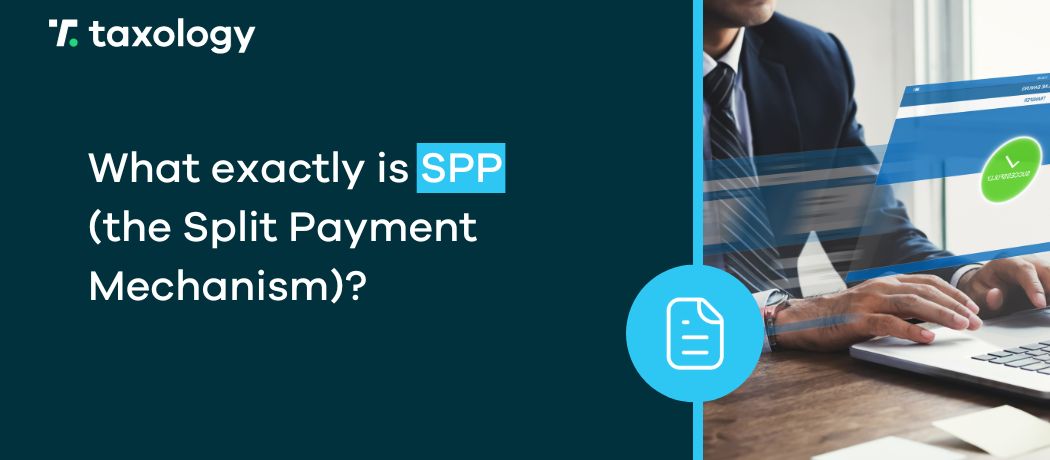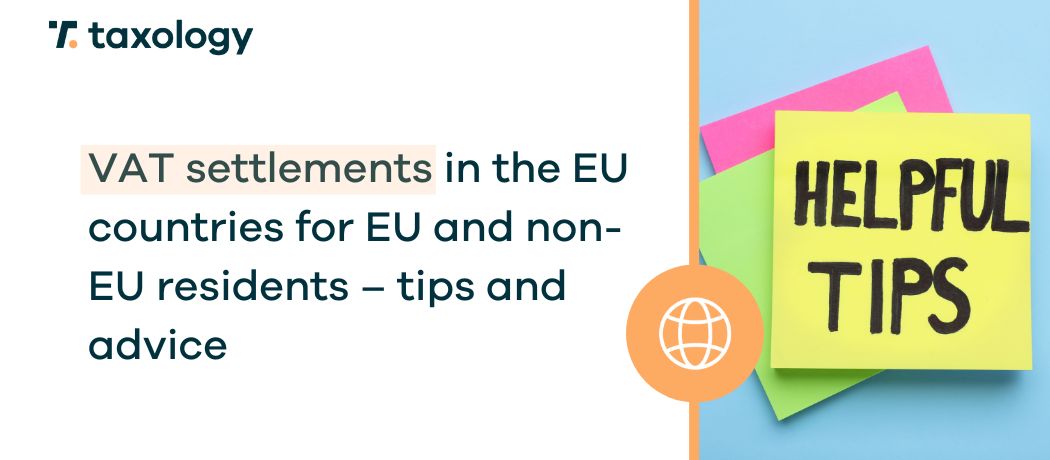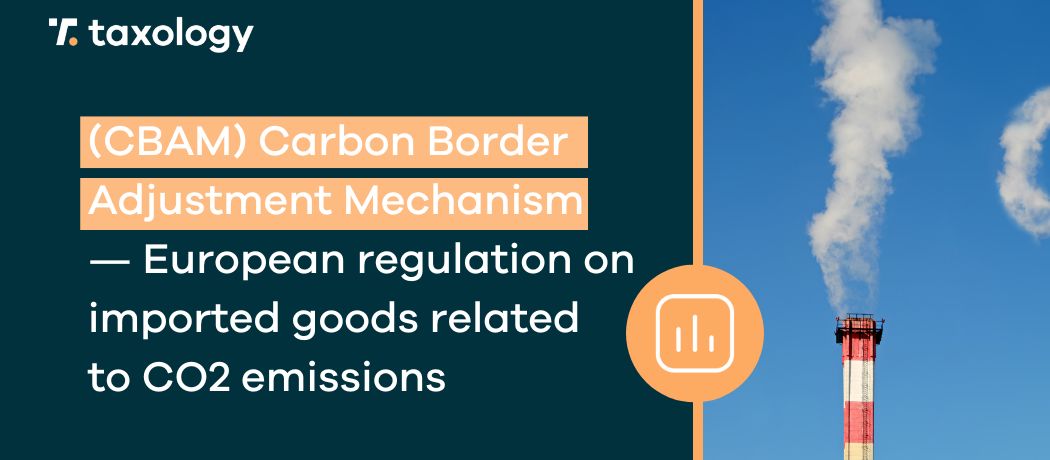VAT settlements in European Union countries are a key aspect of financial management for any business operating on the international market. Understanding the rules that govern these settlements is essential […]
Read in: 5 minWhat exactly is SPP (the split payment mechanism)?
- Last update: 23.02.2024
- Published: 23.06.2023
- Read in: 8 min
In an era characterised by dynamic shifts in tax legislation aimed at combating fraudulent activities, novel systems are emerging that necessitate businesses to comprehend and effectively execute them. Among these innovations, the split payment mechanism (MPP) has gained significant relevance for companies engaged in B2B operations.
While initially introduced as an optional approach, this mechanism has now become obligatory in numerous instances, carrying substantial penalties for its improper utilisation. Conversely, it holds the potential to provide businesses with various advantages, including expedited VAT reimbursements and safeguards against liability in uncertain transactions.
This article will delve into the definition of the MPP, along with associated aspects such as its advantages, penalties, and the prerequisites mandating its application.
From the following article you will find out:
- What exactly is the split payment mechanism?
- When is this mechanism compulsory?
- Who does the MPP apply to?
- What can the funds held in the VAT account be used for?
- What are the benefits of using the split payment mechanism?
- What are the penalties for failing to pay an MPP invoice using split payment?
Split payment mechanism - what exactly is it?
The split payment mechanism, often referred to as MPP, functions as its name implies – a payment-oriented system designed for business-to-business (B2B) transactions. It divides the payment into two components: the net amount, directed to the supplier’s regular checking account, and the tax obligation portion, allocated to the supplier’s dedicated VAT account.
Conversely, settling invoices utilising the split payment mechanism involves a process known as a transfer message. This results in the VAT sum being directed to the aforementioned account, while the net sum finds its way to the supplier’s designated settlement account.
VAT account
As a quick reminder, when someone assumes the role of an entrepreneur and initiates a business account, they are automatically provided with a VAT account. However, the funds accumulated within this account are solely designated for the payment of specific obligations, namely: VAT, income tax, excise duty, tax interest, or customs duties.
The central purpose of introducing the split payment mechanism is primarily to counteract potential tax fraud instances, stemming from the potential exploitation of funds contained within the VAT account by entrepreneurs.
It’s important to underscore that entrepreneurs also possess the option to formally request the tax office to transfer the amassed VAT account funds to the company’s bank account. Nonetheless, the tax office is granted a 60-day window to process and respond to such requests, with the possibility of rejection. In case of a rejection, the owner of the VAT account is entitled to contest the decision, prompting the head of the tax office to provide a response within 14 days.
However, if the need arises, while awaiting a response, the funds accrued within the VAT account can be utilised to settle outstanding dues through the split payment mechanism.
At what point is the utilisation of the split payment mechanism obligatory?
The use of the MPP split payment mechanism is a matter of choice, but there are instances where it becomes obligatory. This is applicable in transactions falling under the following circumstances:
- Business-to-business (B2B)
- In cases where the total invoiced amount exceeds PLN 15,000
- Transactions involving ‘sensitive’ goods and services, as defined in Appendix 15 of the VAT Act.
Upon meeting all of the above criteria, the issuer is mandated to include the notation ‘Split Payment Mechanism’ on the invoice, and subsequently, the recipient must split the bank transfer accordingly.
It’s worth emphasising that if at least one item on the invoice pertains to goods or services outlined in Appendix 15 of the VAT Act, and the total value surpasses PLN 15,000 gross, the MPP is exclusively applicable to that specific good or service. While other items on the invoice have the option to utilise the split payment mechanism, it is not obligatory to do so.
Example Scenario: Let’s consider Company A issuing an invoice for the sale of goods to Company B. The total gross value of the invoice amounts to £20,000, encompassing various items. Notably, among these items, only lignite qualifies as an Annex 15 product, valued at £1,000 net, accompanied by a £230 VAT charge.
Consequently, the invoice requires the MPP designation, yet Company B is obligated to employ the MPP exclusively for the lignite portion. This implies that Company A’s VAT account must receive precisely PLN 230 in VAT. Conversely, the payment for the remaining purchased items can be accomplished with or without invoking the split payment mechanism – the decision lies with Company B.

Need help with VAT?
If you need support in the field of VAT – registration, declarations, settlements, VAT OSS or EU VAT – in the European Union and/or Great Britain, we will take care of it for you! Just let us know what you need!
Schedule a consultationExceptions to the split payment mechanism
When discussing scenarios that necessitate the obligatory use of the split payment mechanism, it’s inevitable to address instances that deviate from this norm. Such exceptions arise in the following circumstances:
- Transactions executed under a public-private partnership agreement, given that the seller was a private entity at the time of delivery.
- Cases involving offsetting, as specified in Article 498 of the Civil Code.
Also check out: E-commerce payment systems in Europe.
Which goods and services does the Split Payment Mechanism apply to?
As previously stated, a prerequisite for the obligation to employ the split payment mechanism is the provision of designated goods and services outlined in Appendix 15 of the VAT Law. This compilation encompasses a total of 150 items, and the comprehensive inventory can be accessed here. Noteworthy inclusions consist of:
- Services related to construction
- Specific electrical equipment, such as processors derived from integrated electronic circuits
- Items crafted from materials like steel, copper, silver, gold, or aluminium
- Retail transactions involving automotive components
- Computer hardware encompassing elements like hard drives and software.

Making payments using the split payment mechanism
Completing a transaction during the operation of the MPP entails utilising the transfer message, accompanied by essential particulars including the VAT sum, total sales value, invoice identification, and the supplier’s Tax Identification Number (TIN).
The benefits behind the MPP split payment mechanism
Additionally, it’s important to acknowledge that there are numerous advantages associated with the utilisation of the Split Payment Mechanism.
Faster tax refunds
Using the MPP offers the advantage of swifter tax refunds deposited into your VAT account. The tax office is mandated to process these refunds within 25 days from the submission of your tax return.
No penalties are incurred when transferring funds to an account that isn’t featured among the VAT taxpayer list.
Upon receiving an invoice paid through the Split Payment mechanism to an account that is not included in the VAT taxpayer list, then the business has the liberty to classify the payment as a tax-related expense. Consequently, the business is exempt from any joint liability for VAT obligations arising from that particular invoice.
No interest on late VAT payments
In situations where value added tax payments are delayed, businesses could face penalties in the form of interest charges, which can escalate to as high as 150% of the VAT amount. Nonetheless, this provision doesn’t come into effect if at least 95% of the input tax is attributed to invoices settled using the Split Payment approach.
It’s important to highlight that exceptions from interest payments aren’t applicable when the outstanding VAT surpasses double the input tax figure stated in the filed tax return.
No sanctions related to VAT
An additional advantage of the split payment mechanism is the lack of VAT penalties imposed on the sum paid using MPP.
Proof of due diligence
Utilising the split payment method when making transfers to the account of a recipient who is later identified as an untrustworthy contractor acts as evidence that the sender has exercised diligence. This becomes particularly significant when the tax authorities may question the validity of the input tax amount.
Release of funds from enforcement measures
In most cases, funds held in a VAT account remain immune to both judicial and administrative enforcement actions. However, exceptions to this rule include enforcement procedures concerning VAT, excise duties, income tax, as well as interest accrued on overdue payments for income tax, VAT, customs duties, and social security (ZUS) contributions.

Failing to apply Split Payment
When VAT-paying entities are obligated to employ the split payment mechanism and neglect to adhere to this obligation, they may face sanctions. These penalties can be classified into measures affecting vendors and those affecting purchasers.
Penalties for vendors
The most common form of punitive action is fines, which sellers may incur if they neglect to designate invoices with the ‘split payment mechanism’. In such instances, the fine corresponds to 30% of the VAT indicated on the MPP invoice, capped at a maximum of PLN 5,400,000 (equivalent to 180 daily rates) for sole proprietorships.
In cases where the invoice lacks the required designation, the fine can be evaded by the contractor if the payment for the invoice is executed using the appropriate transfer message.
Penalties for purchasers
Much like the penalties imposed on vendors, buyers can also be subject to sanctions if they disregard the requirement to make payments using the MPP as indicated on the invoice. For individual traders, the maximum penalty can reach up to 720 daily rates, which is equivalent to PLN 21,600,000.
However, this penalty can be avoided if the tax liability on the vendor’s end is settled correctly. On the flip side, failing to adhere to the MPP indication on an invoice will prevent the entrepreneur from classifying the expense as a tax-deductible cost.
Split Payment Mechanism - Summary
SPP, also known as the split payment mechanism, introduces a payment method that partitions the total into a net sum, channelled to the supplier’s settlement account, and a separate VAT amount, designated for a dedicated VAT account. The introduction of MPP is geared towards countering tax fraud. In specific instances, compliance with this method is obligatory, and overlooking it may result in financial penalties. The VAT account is designed to accumulate funds designated for settling various taxes and obligations.
This mechanism offers a range of benefits, including prompt refunds, exemption from penalties for transfers to accounts not registered as VAT contributors, relief from interest charges on delayed VAT payments, and the establishment of evidence for practising due diligence when dealing with dishonest contractors.
However, SPP also imposes specific obligations and prerequisites. It is applicable to B2B transactions, transactions exceeding PLN 15,000 gross, and transactions involving ‘sensitive’ goods and services outlined in Annex 15 of the VAT Act. Failing to adhere to mandatory SPP implementation entails the potential for financial penalties affecting both sellers and buyers.
Incorrect VAT settlements and VAT-related issues can also result in penalties, especially when dealing with cross-border trade. Therefore, if you are actively involved in the e-commerce sector, especially in foreign markets, and require assistance with VAT matters such as VAT registration, EU VAT, VAT OSS, or VAT settlements and returns, we invite you to schedule a free consultation with us. Discover how our team of VAT Compliance specialists can offer valuable support for you and your business.




